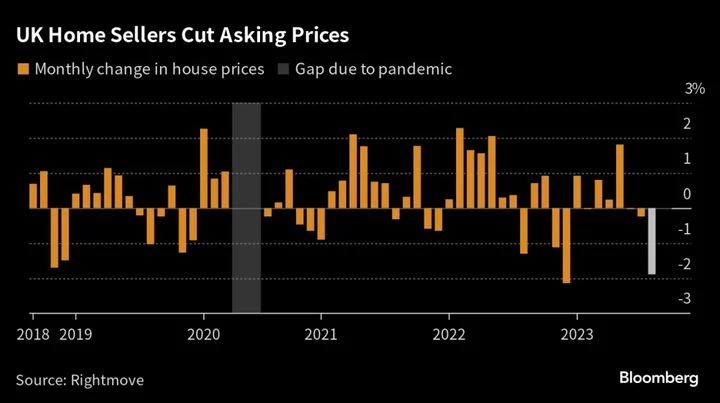Oil steadied after falling over the previous three sessions on signs that the Israel-Hamas war will remain contained for the time being.
Global benchmark Brent was near $88 a barrel, erasing about half of the gains since Hamas’ attack on Oct. 7, while West Texas Intermediate fell below $84 a barrel. The US and Saudi Arabia agreed to pursue diplomatic efforts to maintain stability across the Middle East, the White House said Tuesday, helping to ease fears of major disruptions to the oil market.
Crude spiked in the initial stages of the war on concerns the conflict would escalate, potentially threatening exports from Iran and leading to attacks on tankers in key shipping routes. Those fears have ebbed in recent sessions, with growing calls within Israel to rethink the scope of a ground invasion of Gaza, although the risk of further disruption remains.
Crude’s string of declines “might reflect the hold back on a ground invasion in Gaza,” said Vishnu Varathan, Asia head of economics and strategy at Mizuho Bank Ltd. However, “live risks of a more uncontained conflict would be reflected in a heartbeat” if Iran, Lebanon or others were drawn in, he said.
Away from the Middle East, President Xi Jinping stepped up support for the Chinese economy, issuing additional sovereign bonds and raising the budget deficit ratio. The moves are spurring optimism in wider financial markets and could support demand in the world’s biggest crude importer.
The industry-funded American Petroleum Institute said Tuesday that nationwide crude inventories declined by 2.67 million barrels last week, according to people familiar with the data, a potentially bullish signal for oil. However, stockpiles at the Cushing, Oklahoma, storage hub, were seen rising modestly. Official figures are due later on Wednesday.
Terminal users can click here for more on the Israel-Hamas War.









